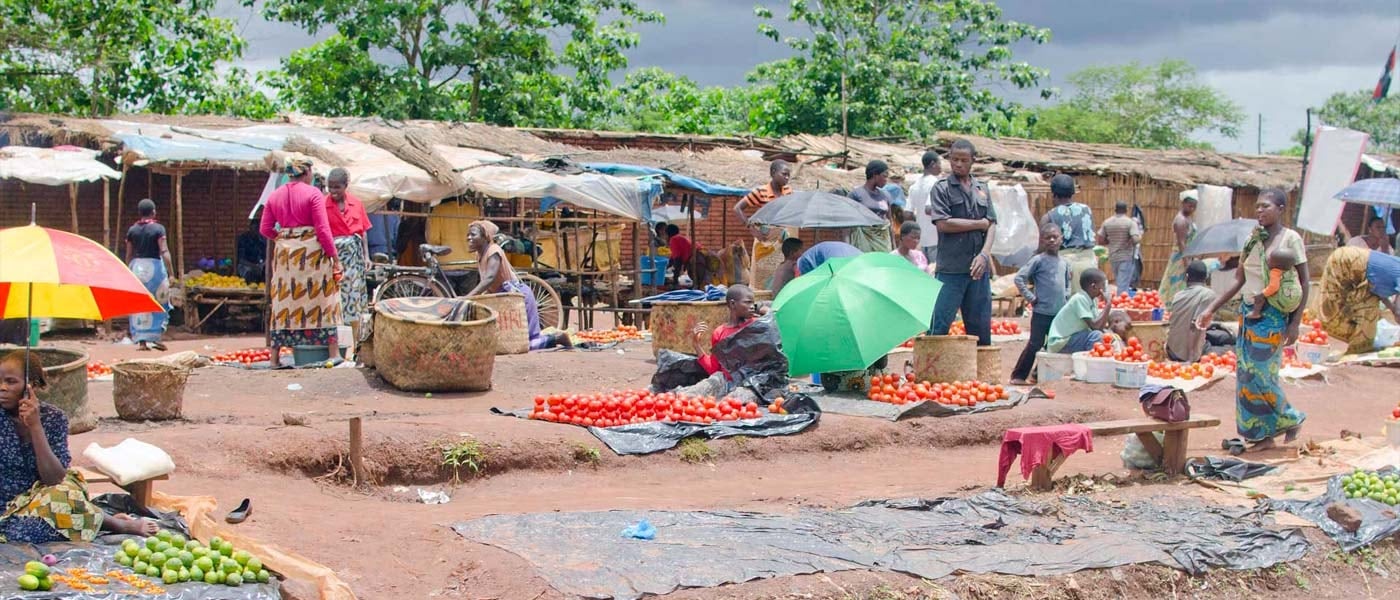
Malawi
The public health service in Malawi is marked by the lack of qualified and trained personnel. In spite of great efforts in this area, from Norway as well, there is still a lack of nurses.
Over half of the population of Malawi live below the poverty line, and the country is ranked as one of the 25 poorest countries in the world. Co-infection with tuberculosis and HIV is extremely high in southern Africa in general, and in Malawi more than half of the tuberculosis patients also have HIV.
Ensuring patients good access to treatment for both diseases is challenging. It is also a challenge to organise tuberculosis treatment so that patients can more easily complete the treatment.
Read more about co-infection between HIV and tuberculosis here.
Partners in Malawi
In order to succeed with our work, it is important to have good local partners. In Malawi, we are cooperating with the research centre REACH Trust and Paradiso. This work is primarily supported by funding from Norad.
REACH Trust is a Malawi research centre that works to ensure that patients with tuberculosis and HIV receive rapid diagnosis and treatment. REACH Trust also works with other public health problems and societal challenges, such as non-infectious lung diseases and the rights of people with disabilities. REACH Trust functions as a liaison between the public health service and the local community.
Paradiso is a patient organisation that involves volunteers from the local community to help patients complete their treatment. Most of the members of Paradiso are either HIV positive or former tuberculosis patients. There is a great need for health personnel, and the treatment for tuberculosis takes a long time. Therefore the voluntary treatment supporters from Paradiso have a very important role to play in treating people so that they get well.
Our work in Malawi
Health systems and the situation of people with disabilities:
Through our cooperation with REACH Trust, we are developing and testing out systems to improve the functioning of the health service for patients. For example, we look at the advantages of people with a cough being examined for both tuberculosis and other lung diseases at the same place of treatment. Today these people must visit different clinics in order to be diagnosed.
We also look at the extent to which civil society can contribute to improving treatment results, and how the life situation of people with disabilities is affected by lung diseases such as tuberculosis, asthma, bronchitis and COPD.
This is done as part of the research project Triage-plus phase 2, which has four partners:
- REACH Trust in Malawi
- Epi-Lab in Sudan
- Liverpool School of Tropical Medicine in England
- LHL International
In addition, we support the education of female researchers in Malawi.
Health communication in Malawi:
REACH Trust cooperates with Paradiso, the national tuberculosis programme in Malawi and LHL International on involving “informal health providers” (unskilled, voluntary treatment assistants) in the treatment of tuberculosis and HIV in Malawi’s capital, Lilongwe.
The volunteers receive training in how to follow up patients, and in providing public education on the two diseases. The goal is increased access to and availability of diagnosis of tuberculosis and HIV, and providing better treatment.
You can read more about the importance of good health communication here.
Peer support work in Malawi:
Peer support work is very important to ensure that tuberculosis patients manage to complete their treatment. Approximately 100 patients are helped every year through Paradiso.
Paradiso operates small cafés that provide income for the organisation. Women are given an opportunity to learn to sew clothing, and they sell milk from cows that Paradiso owns. This provides important income to the organisation. Paradiso also pays the school fees for children who have been orphaned due to the tuberculosis or HIV epidemics.
Read more about peer support work here.
Goals and results in Malawi
Cooperation with our partners in Malawi has existed since 2001. The goal is to support the development of local research expertise. In addition, we would like to acquire more knowledge about access to health services for people with disabilities, the level of knowledge and the needs with regard to tuberculosis and HIV. At the same time we will support and provide professional input to the development of a patient organisation that can give tuberculosis patients a strong voice in future.
The results of our research project so far show that it is possible to increase the number of new diagnosed cases of tuberculosis and HIV, and to have more of them treated. The use of voluntary treatment assistants and local organisations contributes to giving more people an opportunity to start HIV treatment (ARV).
Research has shown that people with disabilities have poor access to information on tuberculosis and HIV. We are working on a study now that will focus on the availability of information for people with disabilities, which will look at the opportunities to improve access to health services for these individuals at the same time.
It is important that the patients have a strong voice, both at the local and national levels. The fact that the Director of Paradiso has had a seat on the board of the National AIDS Commission in Malawi is a sign that the patients’ voice is very visible and that they are heard. At the same time, it helps to reduce the stigma related to the disease.
